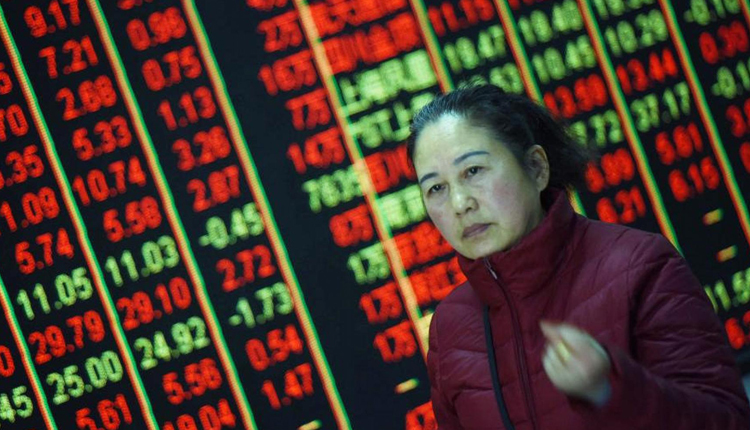Most Asian markets traded slightly lower on Wednesday as markets processed new geopolitical uncertainty related to North Korea and the U.S. 10-year Treasury yield rising to its highest level in seven years overnight.
Japan’s Nikkei 225 eased 0.23 percent and the broader Topix slipped 0.06 percent as mining and oil shares weighed. Banking stocks also pulled back.
Elsewhere, South Korea’s benchmark Kospi pared steeper losses earlier in the morning to hover around the flat line, with gains in index heavyweight Samsung Electronics offsetting declines in oil refiners and stocks in the manufacturing sector.
Greater China markets drifted lower: Hong Kong’s Hang Seng Index shed 0.11 percent, extending losses seen in the last session but off its session lows. On the mainland, the Shanghai composite slipped 0.28 percent and the Shenzhen composite inched lower by 0.04 percent.
Over in Australia, the S&P/ASX 200 clung to gains and edged up by 0.33 percent. The country’s heavily weighted “Big Four” banks carved out moderate gains while the energy sector led gains on the index.
MSCI’s broad index of shares in Asia Pacific excluding Japan slipped 0.08 percent in Asia afternoon trade.
On the earnings front, Tencent is among the corporates in the region slated to announce results later in the day. The Hong Kong-listed tech giant traded lower by 0.45 percent.
Geopolitics were also in focus after new developments out of North Korea. Pyongyang said on Wednesday it would reconsider an upcoming landmark meeting if the U.S. insisted on it giving up its nuclear weapons, Reuters said, citing North Korean media.
Earlier, North Korea had suddenly dropped plans for talks with South Korea slated to take place on Wednesday. Joint military drills between South Korea and the U.S. were highlighted as a reason for the cancellation of talks, Reuters reported, citing North Korea’s state-run Korean Central News Agency.
In currencies, the dollar index, which tracks the U.S. currency against a basket of rivals, was gave up some overnight gains after firming to its strongest levels since December in the last session. The dollar index last stood at 93.267 at 12:04 p.m. HK/SIN after rising as high 93.457 on Tuesday.
Against the yen, the dollar traded at 110.28 — near levels not seen since February.
The tepid performance in Asia came after U.S. stocks closed lower on Tuesday, with the Dow Jones industrial average snapping eight consecutive days of gains.
The yield on the benchmark 10-year Treasury note rose to 3.09 percent on Tuesday, its highest level in around seven years. On the economic front, retail sales stateside for April were in line with forecasts, rising 0.3 percent.
“Why this is significant, is that if bonds are embarked on a journey to higher yields, then the recent outflows from troubled emerging market countries (Argentina, Turkey, Indonesia) could become even greater,” ING Chief Economist Robert Carnell wrote in a note.
Others market participants, however, said rising rates were not necessarily negative for emerging markets.
“Frankly, it’s been so much discussed, it is completely priced in. There’s no surprise. We all know that these rates are rising. The question has always been about the pace,” Karine Hirn, partner at emerging markets manager East Capital, told CNBC’s “Squawk Box.”
Oil prices traded lower as markets focused on U.S. crude stockpiles along with the potential impact of U.S. sanctions on Iranian oil exports. U.S. crude futures edged down by 0.25 percent to trade at $71.13 per barrel and Brent crude futures shed 0.15 percent to trade at $78.31.
In individual movers, dairy company A2 Milk slumped 12.98 percent in New Zealand after announcing it expected full-year revenue to come in between 900 million New Zealand dollars ($618 million) and NZ$920 million ($631 million). That was below a Thomson Reuters forecast of NZ$940 million.
In Australia, shares of Myer jumped 12.67 percent after the department store operator reported that its third-quarter sales declined 2.7 percent. That was slower than the 3.6 percent drop in the first half of the year, Reuters reported.
Source: CNBC


